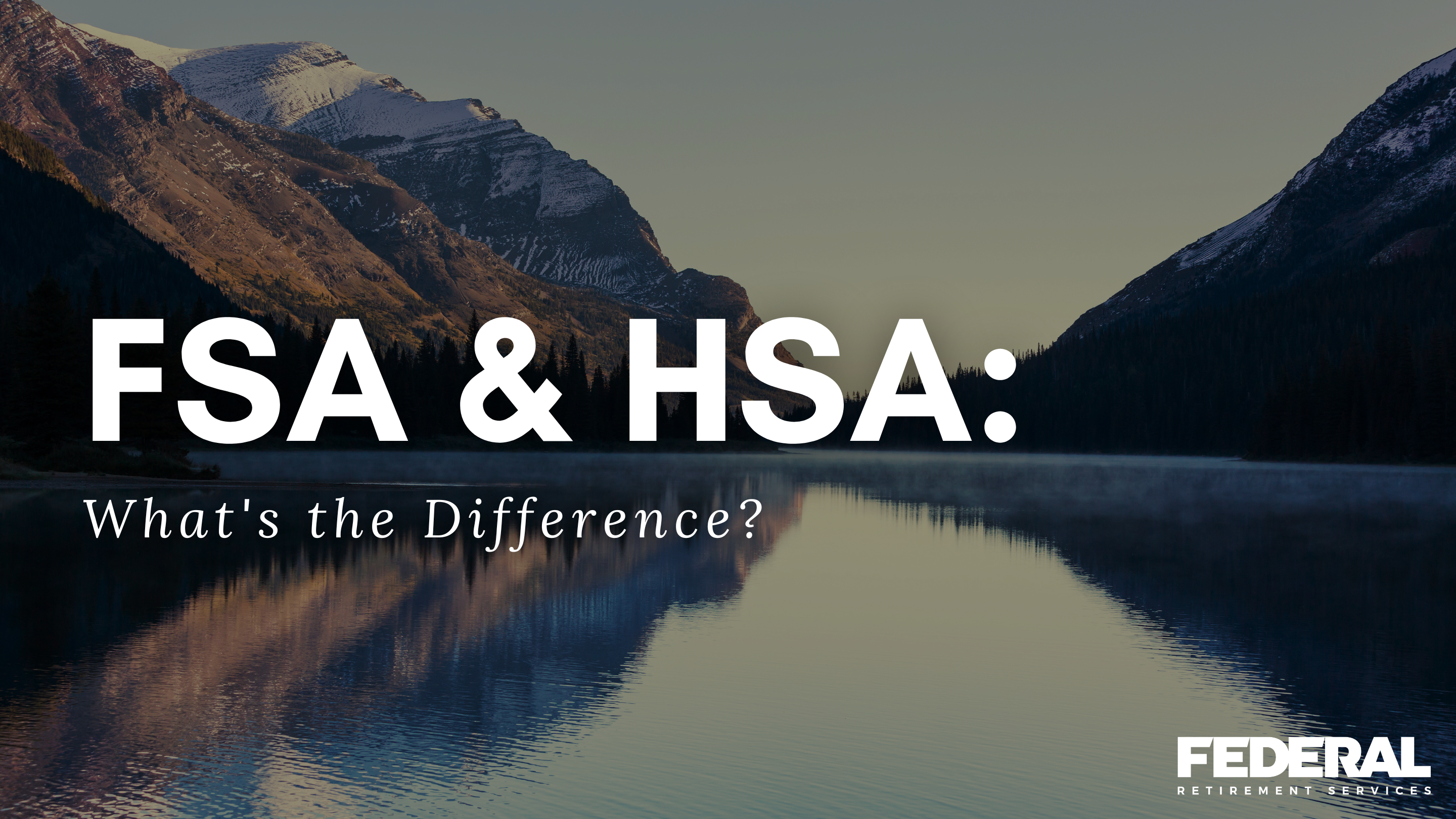
FSA and HSA: What’s the Difference?
Did you know that as a federal employee, you have access to two tax-advantaged accounts to help cover the costs of your medical care?
It’s true! Federal employees can choose to open a Flexible Spending Account (FSA) and/or a Health Savings Account (HSA). These two accounts are often confused, but it’s important to understand the differences to make the most of your benefit—and not accidentally lose any of your hard-earned money. Here’s what you need to know.
What Is an FSA?
An FSA is a special account set up for you by your employer. When you choose to open one, you designate contributions to be taken directly from your paycheck and deposited into the account. You can then use your FSA account to request reimbursement for qualified medical expenses, such as prescriptions, medical and dental copays, over-the-counter medications, and certain medical equipment. The federal FSA allows you to pay your provider directly or to sign up for direct deposit for reimbursements.
The big benefit? Your contributions are taken pre-tax, so you lower your total taxable income for the year.
There are some limits and rules to be aware of, however. For 2023, you can only contribute $3,050 into a healthcare FSA. FSA funds are also “use it or lose it,” so if you don’t use all your funds for the year by the end of that calendar year, you’ll forfeit anything over the carryover amount of $610. If you have less than $610 left at the end of the year, that amount remains available to spend in the coming year, provided you re-enroll.
Pros: Tax-free contributions lowers your tax bill; many common drug store items are eligible for reimbursement, as are copays
Cons: No debit card provided; you could forfeit amounts in excess of $610 if you don’t spend it by the end of the year; you cannot use it in retirement
What Is an HSA?
Like the FSA, an HSA is a special savings account used for qualified healthcare expenses. Tax-free contributions can come directly from your paycheck, but you can also choose to add funds directly and take a deduction on your tax return instead.
One big difference is eligibility: You can only open an HSA if your health insurance policy is designated as a High-Deductible Health Plan (HDHP). It’s important to note that not every policy with a high deductible has this official designation, so you’ll have to check to see which policies qualify.
The other main difference is that an HSA is portable. You own the account forever, even if you change employers or health insurance plans. While you can only contribute to the account while you have an HDHP, you can maintain the funds and use them for medical expenses in perpetuity. That means you can also earn interest on the funds for as long as you own the account—that’s tax-free growth for the life of the account.
For 2023, the contribution limits for an HSA are $3,850 for a single person and $7,750 for a family insurance plan. There’s also a catch-up contribution limit of an additional $1,000 for anyone age 55 or older.
Pros: Tax-free contributions and growth, as long as you spend it on healthcare expenses; no carryover limits
Cons: Requires a high-deductible health insurance plan; account may be subject to management fees and limited to certain investment options
How to Choose Between an HSA and an FSA
In general, an HSA offers more flexibility and the opportunity for greater savings and tax benefits over time. Because you can keep your money growing tax-free for as long as you like, it’s potentially a great investment vehicle, especially if you’ve already maxed out your TSP contributions. The only drawback is that you must spend the money on healthcare expenses to avoid taxes and penalties. Still, the odds of you having those expenses as you age are very strong, making the HSA a great addition to your full financial plan.
To make your choice between an HSA and FSA, you’ll first have to check your eligibility. Do you have a high-deductible health plan?
More importantly, do you want one?
If you are generally healthy and aren’t in danger of meeting that high deductible, then an HDHP and HSA probably make sense for you. You might also feel comfortable with the high deductible if you have a solid emergency fund or robust savings account that you can tap into if you need to (and remember, you can use your HSA funds to cover the deductible as well).
On the other hand, if you need to access healthcare regularly and don’t have a plan to cover that high deductible, an FSA might be better for you. You can pair this benefit with an insurance plan with a lower deductible to get the great tax benefit without worrying about stretching yourself too thin if you get sick.
The Bottom Line
Both the FSA and HSA are great benefits, but you should consider your full financial picture to make the best decision. We get it—sorting through your benefits can be tricky. Sometimes you need help putting together all the pieces of the benefits puzzle. If that’s true for you, call us! We’re professionals in federal retirement and benefits, and we’re here to help you develop a solid financial plan that makes the most of everything you’ve earned.




